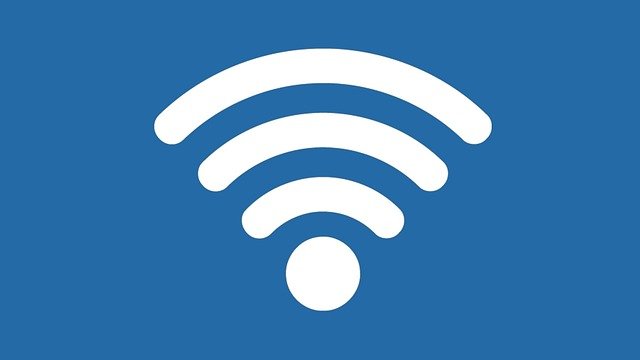Finding the Best Internet Plans for Seniors: Discounts, Options, and Availability
The internet has become an essential utility for people of all ages, including senior citizens who rely on it to stay connected with family, access healthcare resources, manage finances, and enjoy entertainment. Yet many seniors find themselves on fixed incomes, making affordability a crucial factor when selecting an internet service provider. Fortunately, several companies offer specialized internet plans and discounts specifically designed for older adults. Understanding what options exist, how to qualify, and which services best meet senior-specific needs can help ensure reliable connectivity without breaking the budget.

What Internet Discounts Are Available for Senior Citizens?
Many internet service providers (ISPs) offer special discounts or programs specifically designed for senior citizens. These discounts typically range from $10 to $30 off monthly bills, though eligibility requirements vary by provider. The most common senior internet discounts include:
AT&T offers its Access program for low-income households, including seniors, with plans starting at $10 per month. Comcast provides its Internet Essentials program for qualifying low-income households, including those with seniors receiving certain government benefits. Spectrum offers Internet Assist for households with members 65+ who receive Supplemental Security Income. Additionally, the federal government’s Affordable Connectivity Program (ACP) provides eligible households, including many seniors, with discounts of up to $30 per month on internet service.
How to Find Available Internet Providers at Your Address
Before selecting an internet provider, seniors need to determine which services are available at their specific location. Internet availability varies significantly based on geographic location, with urban areas typically having more options than rural regions. To find available internet providers at your address:
Use online availability checkers provided by individual ISPs or third-party sites like BroadbandNow or Allconnect. These tools allow you to enter your address and see a list of available providers and plans. Alternatively, calling providers directly can give you the most up-to-date information about service availability in your area. Local libraries and senior centers often maintain lists of internet providers serving the community and may offer assistance with checking availability. When checking availability, pay attention to the types of connections offered (fiber, cable, DSL, or satellite) as this affects internet speed and reliability.
What Makes an Internet Plan Best for Seniors?
The best internet service for seniors depends on individual needs, technical comfort level, and usage patterns. Seniors should consider several factors when evaluating internet plans:
Speed requirements vary based on usage—basic email and web browsing may only need 25 Mbps, while video calls with family or streaming services require faster speeds of 50-100 Mbps. Reliability is crucial, especially for seniors who depend on internet for telehealth appointments or emergency communication. Look for providers with high uptime percentages and good customer reviews regarding service stability. Customer service quality is particularly important for seniors who may need technical support. Providers offering dedicated senior support lines, in-home setup assistance, or clear, jargon-free instructions may be preferable. Contract terms matter too—many seniors prefer month-to-month plans without long-term commitments or early termination fees.
Comparing Senior Internet Plans from Major Providers
When evaluating internet plans specifically designed for seniors, it’s important to compare offerings from multiple providers. Below is a comparison of some major providers offering senior-friendly internet plans:
| Provider | Plan Name | Speed | Monthly Cost | Special Senior Features |
|---|---|---|---|---|
| AT&T | Access Program | 10-100 Mbps | $10-$30 | No contract, equipment included |
| Spectrum | Internet Assist | 30 Mbps | $14.99 | No data caps, modem included |
| Comcast/Xfinity | Internet Essentials | 50 Mbps | $9.95 | Free WiFi equipment, no credit check |
| T-Mobile | Home Internet 55+ | 35-115 Mbps | $40 ($10 discount for 55+) | No annual contracts, price lock guarantee |
| CenturyLink | Simply Unlimited Internet | 100 Mbps | $50 (eligible for ACP discount) | Price for Life guarantee |
Prices, rates, or cost estimates mentioned in this article are based on the latest available information but may change over time. Independent research is advised before making financial decisions.
How to Apply for Senior Discount Internet Plans
Accessing senior discount programs for internet service requires understanding application procedures and eligibility requirements. Most providers have specific processes in place:
For provider-specific programs, seniors typically need to provide proof of age (usually 65+) and sometimes income verification. For income-based programs like Internet Essentials or Access from AT&T, applicants generally need to show participation in government assistance programs like Medicaid, SNAP, SSI, or meet income thresholds. The Affordable Connectivity Program requires an application through the Universal Service Administrative Company (USAC) website or directly through participating providers. Required documentation typically includes proof of identity, address verification, and evidence of program participation or income level.
Most providers offer online applications, but phone and mail options are usually available for seniors who prefer traditional methods. Many libraries, senior centers, and community organizations offer assistance with the application process for those who need help navigating the paperwork.
Beyond Basic Plans: Additional Internet Considerations for Seniors
When selecting an internet plan, seniors should consider additional factors beyond just the basic service:
Equipment costs and ease of use are important—some providers include modems or routers at no extra cost, while others charge monthly rental fees. Look for providers offering simplified equipment designed for less tech-savvy users. Digital security features are crucial as seniors are often targeted for online scams. Providers offering built-in security software, regular security updates, and fraud protection add value. Technical support accessibility matters greatly—providers offering phone-based tech support with minimal wait times, or even in-home support options, can be invaluable for seniors experiencing connectivity issues.
Some providers also offer computer literacy programs or training specifically designed for senior customers, which can help maximize the value of internet service by teaching essential online skills.
The best internet service for seniors balances affordability, simplicity, reliability, and access to necessary support. By carefully researching available options, understanding discount programs, and assessing individual needs, seniors can find internet service that enhances their quality of life without creating financial strain.




